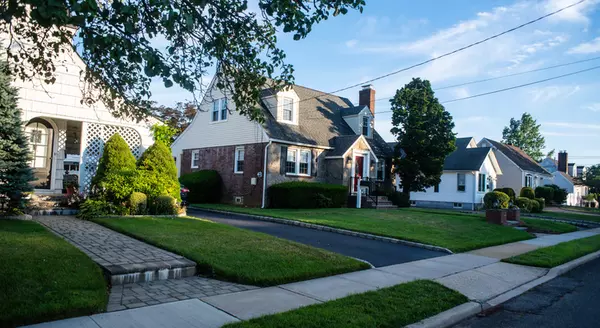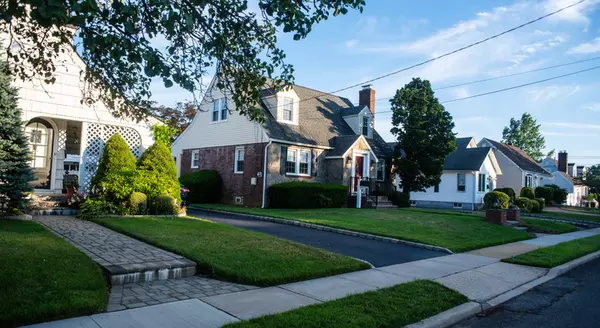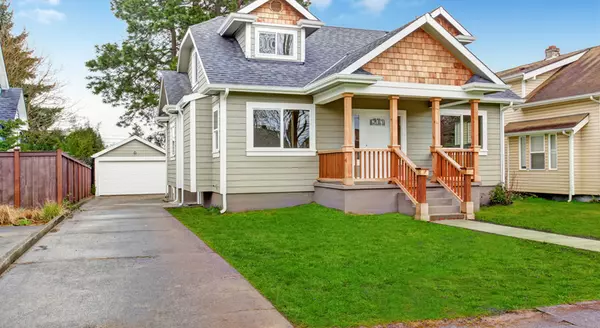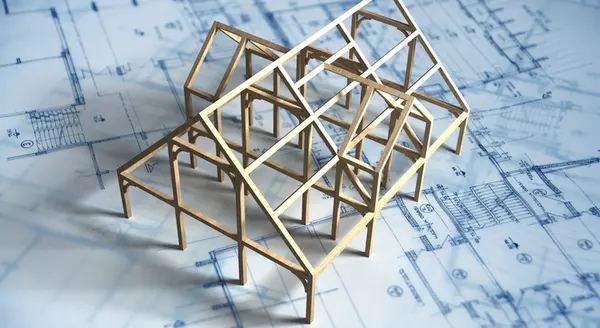Foreclosure Numbers Are Nothing Like the 2008 Crash

If you’ve been keeping up with the news lately, you’ve probably come across some articles saying the number of foreclosures in today’s housing market is going up. And that may leave you feeling a bit worried about what’s ahead, especially if you owned a home during the housing crash in 2008.The real
Read MoreThe Best Way To Keep Track of Mortgage Rate Trends

If you’re thinking about buying a home, chances are you’ve got mortgage rates on your mind. You’ve heard about how they impact how much you can afford in your monthly mortgage payment, and you want to make sure you’re factoring that in as you plan your move.The problem is, with all the headlines in
Read MoreWhat You Really Need To Know About Home Price Headlines

According to recent data from Fannie Mae, almost 1 in 4 people still think home prices are going to come down. If you’re one of the people worried about that, here’s what you need to know.A lot of that fear is probably coming from what you’re hearing in the media or reading online. But here’s the th
Read MoreWhat You Really Need To Know About Home Prices

According to recent data from Fannie Mae, almost 1 in 4 people still think home prices are going to come down. If you’re one of the people worried about that, here’s what you need to know.A lot of that fear is probably coming from what you’re hearing in the media or reading online. But here’s the th
Read MoreMyths About the 2024 Housing Market [INFOGRAPHIC]
![Myths About the 2024 Housing Market [INFOGRAPHIC],KCM Crew](https://img.chime.me/image/fs/chimeblog/20240420/16/w600_original_a9467dbe-b754-4636-9aea-92cfd79e72eb-png.webp)
Some HighlightsWhen it comes to the current housing market, there are some myths circling around right now. Some of the more common ones are that it’s better to wait for mortgage rates to fall or prices to crash. But there are others about the supply of homes for sale and down payments. Lean on a re
Read MoreIs It Getting More Affordable To Buy a Home?

Over the past year or so, a lot of people have been talking about how tough it is to buy a home. And while there’s no arguing affordability is still tight, there are signs it’s starting to get a bit better and may improve even more throughout the year. Elijah de la Campa, Senior Economist at Redfin,
Read MoreIs It Better To Rent Than Buy a Home Right Now?

You may have seen reports in the news recently saying it’s more affordable to rent right now than it is to buy a home. And while that may be true in some markets if you just look at typical monthly payments, there’s one thing that the numbers aren’t factoring in: and that’s home equity. Here’s a loo
Read MoreShould I Wait for Mortgage Rates To Come Down Before I Move?

If you’ve got a move on your mind, you may be wondering whether you should wait to sell until mortgage rates come down before you spring into action. Here’s some information that could help answer that question for you.In the housing market, there’s a longstanding relationship between mortgage rates
Read MoreWays To Use Your Tax Refund If You Want To Buy a Home

Have you been saving up to buy a home this year? If so, you know there are a number of expenses involved – from your down payment to closing costs. But did you also know your tax refund can help you pay for some of these expenses? As Credit Karma explains:“If one of your goals is to stop renting and
Read MoreThe Perks of Downsizing When You Retire [INFOGRAPHIC]
![The Perks of Downsizing When You Retire [INFOGRAPHIC],KCM Crew](https://img.chime.me/image/fs/chimeblog/20240411/16/w600_original_328d7de4-5977-44d3-8b18-396b57bb2237-png.webp)
Some HighlightsIf you’re about to retire, or just did, downsizing can be a good way to try to cut down on some of your expenses.Smaller homes typically have lower energy and maintenance costs. Plus, you may have enough equity built up to fuel your move.If you’re thinking about moving to a smaller ho
Read MoreBuilders Are Building Smaller Homes

There’s no arguing it, affordability is still tight. And if you’re trying to buy a home, that may mean you need to look at smaller houses to find one that’s still in your budget. But there is a silver lining: builders are focused on building these smaller homes right now and they’re offering incenti
Read MoreShould I Move with Today’s Mortgage Rates?

When mortgage rates spiked up over the last few years, some homeowners put their plans to move on pause. Maybe you did too because you didn’t want to sell and take on a higher mortgage rate for your next home. But is that still the right strategy for you?In today’s market, data shows more homeowners
Read MoreThe Top 5 Reasons You Need a Real Estate Agent when Buying a Home

You may have heard headlines in the news lately about agents in the real estate industry and discussions about their commissions. And if you’re following along, it can be pretty confusing. But here’s the thing you really need to know – expert advice from a trusted real estate agent is priceless, now
Read MoreDon’t Let Your Student Loans Delay Your Homeownership Plans

If you have student loans and want to buy a home, you might have questions about how your debt affects your plans. Do you have to wait until you’ve paid off those loans before you can buy your first home? Or is it possible you could still qualify for a home loan even with that debt? Here’s a look at
Read MoreTop 5 Reasons To Hire an Agent When Buying a Home [INFOGRAPHIC]
![Top 5 Reasons To Hire an Agent When Buying a Home [INFOGRAPHIC],KCM Crew](https://img.chime.me/image/fs/chimeblog/20240406/16/w600_original_14b33103-5f83-48b0-9b7f-b94a55ab030c-png.webp)
Some HighlightsHiring an agent when buying a home helps you understand the buying process and the local market.They’ll also go over contracts and fine print with you, so you understand what you're agreeing to. Plus, they're good at negotiating, making sure you get the best deal.Expert advice from a
Read MoreBoomers Moving Will Be More Like a Gentle Tide Than a Tsunami

Have you heard the term “Silver Tsunami” getting tossed around recently? If so, here’s what you really need to know. That phrase refers to the idea that a lot of baby boomers are going to move or downsize all at once. And the fear is that a sudden influx of homes for sale would have a big impact on
Read MoreNewly Built Homes Could Be a Game Changer This Spring

Buying a home this spring? You’re probably navigating today’s affordability challenges and dealing with the limited number of homes for sale. But, what if there was a solution that could help with both?If you’re having a hard time finding a home you love, and mortgage rates are putting pressure on y
Read MoreWhy Overpricing Your House Can Cost You

If you’re trying to sell your house, you may be looking at this spring season as the sweet spot – and you’re not wrong. We’re still in a seller’s market because there are so few homes for sale right now. And historically, this is the time of year when more buyers move, and competition ticks up. That
Read MoreThe Best Week To List Your House Is Almost Here

Are you thinking about making a move? If so, now may be the perfect time to start the process. That’s because experts say the best week to list your house is just around the corner.A recent Realtor.com study looked at housing market trends over the past several years (with the exception of 2020, sin
Read MoreOutdoor Projects Can Boost Curb Appeal When You Sell [INFOGRAPHIC]
![Outdoor Projects Can Boost Curb Appeal When You Sell [INFOGRAPHIC],KCM Crew](https://img.chime.me/image/fs/chimeblog/20240330/16/w600_original_0ee76cb6-4d14-4d3e-8d85-13df8a362a9b-png.webp)
Some HighlightsIn real estate, a good first impression is key. If the outside of a house looks welcoming, more people will want to come in and see it.Your agent helps you by giving advice on what you may want to prioritize, finding easy fixes that make a big difference, knowing what buyers in your a
Read More
Categories
Recent Posts










